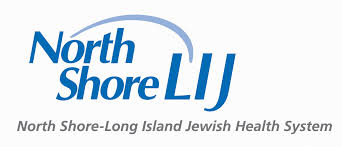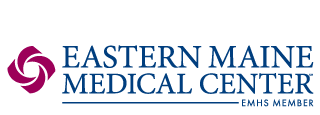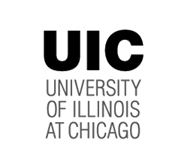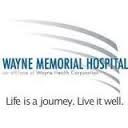Decitabine as Maintenance Therapy After Standard Therapy in Treating Patients With Previously Untreated Acute Myeloid Leukemia
| Status: | Completed |
|---|---|
| Conditions: | Blood Cancer, Blood Cancer, Blood Cancer, Blood Cancer, Hematology |
| Therapuetic Areas: | Hematology, Oncology |
| Healthy: | No |
| Age Range: | 15 - 59 |
| Updated: | 2/21/2019 |
| Start Date: | November 15, 2006 |
| End Date: | December 1, 2016 |
Phase II Study of Maintenance Therapy With Decitabine (NSC #127716) Following Standard Induction and Cytogenetic Risk-Adapted Intensification in Previously Untreated Patients With AML < 60 Years
This phase II trial is studying the side effects and how well decitabine works when given as
maintenance therapy after standard therapy in treating patients with previously untreated
acute myeloid leukemia. Drugs used in chemotherapy, such as cytarabine, daunorubicin,
etoposide, busulfan, and decitabine, work in different ways to stop the growth of cancer
cells, either by killing the cells or by stopping them from dividing. Giving decitabine as
maintenance therapy after standard therapy may keep cancer cells from coming back.
maintenance therapy after standard therapy in treating patients with previously untreated
acute myeloid leukemia. Drugs used in chemotherapy, such as cytarabine, daunorubicin,
etoposide, busulfan, and decitabine, work in different ways to stop the growth of cancer
cells, either by killing the cells or by stopping them from dividing. Giving decitabine as
maintenance therapy after standard therapy may keep cancer cells from coming back.
PRIMARY OBJECTIVES:
I. To determine the efficacy, feasibility, and toxicities when one year of maintenance
therapy with decitabine is given to patients < 60 years with untreated acute myeloid leukemia
(AML) who achieve and maintain first complete remission (CR) following an established
induction and intensification regimen.
II. To determine the 1-year disease free survival rate for AML patients in first CR treated
with maintenance decitabine.
SECONDARY OBJECTIVES:
I. To measure biologic response to decitabine in evaluable patients with fusion genes to
determine eradication of minimal residual disease.
II. To measure surrogates for deoxyribonucleic acid (DNA) demethylation including
downregulation of DNA methyltransferase 1 (DNMT1) and induction of fetal hemoglobin.
III. To examine the significance of gene re expression following ex vivo decitabine exposure
in primary AML cells taken at the time of diagnosis on clinical outcome and on gene
expression at the time of relapse after in vivo decitabine exposure.
IV. To continue to evaluate the effectiveness of a cytogenetically risk-adapted approach for
consolidation therapy for patients with core binding factor (CBF) or non-CBF AML.
V. To continue the investigation begun in Cancer and Leukemia Group B (CALGB) 19808 aimed at
correlation of the rate of relapse and toxicity with intravenous (IV) busulfan
pharmacokinetics when busulfan and etoposide are used as the preparative regimen for
autologous stem cell transplantation for AML patients in first CR.
VI. To correlate outcome measures such as complete response (CR), disease-free survival
(DFS), event-free survival (EFS), and overall survival (OS), with pretreatment
characteristics such as age, sex, race, blood counts, morphology, immunophenotype,
cytogenetics, and molecular features of AML.
OUTLINE:
REMISSION INDUCTION THERAPY: Patients receive cytarabine IV over 168 hours on days 1-7 and
daunorubicin hydrochloride IV over 5-10 minutes and etoposide IV over 2 hours on days 1-3.
Patients undergo bone marrow biopsy on day 14. Patients with residual leukemia proceed to
second remission induction therapy. Patients achieving complete remission (CR) proceed to
intensification therapy.
SECOND REMISSION INDUCTION THERAPY: Patients receive cytarabine IV over 120 hours on days 1-5
and daunorubicin hydrochloride IV and etoposide IV over 2 hours on days 1 and 2. Patients
undergo bone marrow biopsy on day 42. Patients with residual leukemia are removed from the
study. Patients achieving CR proceed to intensification therapy.
INTENSIFICATION THERAPY: Patients are stratified and receive intensification therapy
according to cytogenetic findings (favorable cytogenetics [t(8;21)(q22q22), inv(16)(p13;q22),
or t(16;16)(p13;q22) by cytogenetic and/or molecular analysis] vs unfavorable cytogenetics
[all other cytogenetic findings, including normal cytogenetics]).
FAVORABLE CYTOGENETICS: Within 2-4 weeks after achieving CR, patients receive high-dose
cytarabine IV over 3 hours twice daily on days 1, 3, and 5.
Treatment repeats every 28 days for up to 3 courses.
UNFAVORABLE CYTOGENETICS: Peripheral blood stem cell (PBSC) mobilization: Within 2-4 weeks
after achieving CR, patients receive etoposide IV over 96 hours and high-dose cytarabine IV
over 2 hours twice daily on days 1-4 and filgrastim (G-CSF) subcutaneously (SC) once daily
beginning on day 14 and continuing until blood counts recover. Patients then proceed to
transplantation.
PBSC OR BONE MARROW TRANSPLANTATION: Patients receive busulfan IV over 2 hours 4 times daily
on days -7 to -4 and etoposide IV over 4 hours on day -3. Patients undergo autologous PBSC or
bone marrow transplantation on day 0 and receive G-CSF SC once daily beginning on day 0 and
continuing until blood counts recover.
UNFAVORABLE CYTOGENETICS AND UNABLE TO UNDERGO PBSC TRANSPLANTATION: Within 2-4 weeks after
achieving CR, patients receive etoposide, high-dose cytarabine, and G-CSF as in unfavorable
cytogenetics (PBSC mobilization) followed by 2 courses of high-dose cytarabine as in
favorable genetics.
MAINTENANCE THERAPY: Within 60-90 days after completion of intensification therapy, patients
receive decitabine IV over 1 hour on days 1-5. Treatment repeats every 6 weeks for up to 8
courses.
After completion of study treatment, patients are followed up every 2 months for 1 year,
every 6 months for 2 years, and then yearly for 2 years.
I. To determine the efficacy, feasibility, and toxicities when one year of maintenance
therapy with decitabine is given to patients < 60 years with untreated acute myeloid leukemia
(AML) who achieve and maintain first complete remission (CR) following an established
induction and intensification regimen.
II. To determine the 1-year disease free survival rate for AML patients in first CR treated
with maintenance decitabine.
SECONDARY OBJECTIVES:
I. To measure biologic response to decitabine in evaluable patients with fusion genes to
determine eradication of minimal residual disease.
II. To measure surrogates for deoxyribonucleic acid (DNA) demethylation including
downregulation of DNA methyltransferase 1 (DNMT1) and induction of fetal hemoglobin.
III. To examine the significance of gene re expression following ex vivo decitabine exposure
in primary AML cells taken at the time of diagnosis on clinical outcome and on gene
expression at the time of relapse after in vivo decitabine exposure.
IV. To continue to evaluate the effectiveness of a cytogenetically risk-adapted approach for
consolidation therapy for patients with core binding factor (CBF) or non-CBF AML.
V. To continue the investigation begun in Cancer and Leukemia Group B (CALGB) 19808 aimed at
correlation of the rate of relapse and toxicity with intravenous (IV) busulfan
pharmacokinetics when busulfan and etoposide are used as the preparative regimen for
autologous stem cell transplantation for AML patients in first CR.
VI. To correlate outcome measures such as complete response (CR), disease-free survival
(DFS), event-free survival (EFS), and overall survival (OS), with pretreatment
characteristics such as age, sex, race, blood counts, morphology, immunophenotype,
cytogenetics, and molecular features of AML.
OUTLINE:
REMISSION INDUCTION THERAPY: Patients receive cytarabine IV over 168 hours on days 1-7 and
daunorubicin hydrochloride IV over 5-10 minutes and etoposide IV over 2 hours on days 1-3.
Patients undergo bone marrow biopsy on day 14. Patients with residual leukemia proceed to
second remission induction therapy. Patients achieving complete remission (CR) proceed to
intensification therapy.
SECOND REMISSION INDUCTION THERAPY: Patients receive cytarabine IV over 120 hours on days 1-5
and daunorubicin hydrochloride IV and etoposide IV over 2 hours on days 1 and 2. Patients
undergo bone marrow biopsy on day 42. Patients with residual leukemia are removed from the
study. Patients achieving CR proceed to intensification therapy.
INTENSIFICATION THERAPY: Patients are stratified and receive intensification therapy
according to cytogenetic findings (favorable cytogenetics [t(8;21)(q22q22), inv(16)(p13;q22),
or t(16;16)(p13;q22) by cytogenetic and/or molecular analysis] vs unfavorable cytogenetics
[all other cytogenetic findings, including normal cytogenetics]).
FAVORABLE CYTOGENETICS: Within 2-4 weeks after achieving CR, patients receive high-dose
cytarabine IV over 3 hours twice daily on days 1, 3, and 5.
Treatment repeats every 28 days for up to 3 courses.
UNFAVORABLE CYTOGENETICS: Peripheral blood stem cell (PBSC) mobilization: Within 2-4 weeks
after achieving CR, patients receive etoposide IV over 96 hours and high-dose cytarabine IV
over 2 hours twice daily on days 1-4 and filgrastim (G-CSF) subcutaneously (SC) once daily
beginning on day 14 and continuing until blood counts recover. Patients then proceed to
transplantation.
PBSC OR BONE MARROW TRANSPLANTATION: Patients receive busulfan IV over 2 hours 4 times daily
on days -7 to -4 and etoposide IV over 4 hours on day -3. Patients undergo autologous PBSC or
bone marrow transplantation on day 0 and receive G-CSF SC once daily beginning on day 0 and
continuing until blood counts recover.
UNFAVORABLE CYTOGENETICS AND UNABLE TO UNDERGO PBSC TRANSPLANTATION: Within 2-4 weeks after
achieving CR, patients receive etoposide, high-dose cytarabine, and G-CSF as in unfavorable
cytogenetics (PBSC mobilization) followed by 2 courses of high-dose cytarabine as in
favorable genetics.
MAINTENANCE THERAPY: Within 60-90 days after completion of intensification therapy, patients
receive decitabine IV over 1 hour on days 1-5. Treatment repeats every 6 weeks for up to 8
courses.
After completion of study treatment, patients are followed up every 2 months for 1 year,
every 6 months for 2 years, and then yearly for 2 years.
Inclusion Criteria:
- Unequivocal histologic diagnosis of AML (> 20% blasts in the bone marrow based on the
World Health Organization [WHO] and/or French American British [FAB] classifications),
excluding M3 (acute promyelocytic leukemia); patients with antecedent myelodysplasia
are eligible for treatment on this trial only if there were no bone marrow biopsy
showing myelodysplastic syndrome (MDS) > 3 months prior to enrollment; patients with
therapy-related AML are eligible if they have been free of their primary disease and
have not received any chemotherapy for at least 2 years
- No prior 5-azacitidine or decitabine therapy
- No prior treatment for leukemia or myelodysplastic syndrome with four permissible
exceptions:
- Emergency leukapheresis
- Emergency treatment for hyperleukocytosis with hydroxyurea
- Cranial radiation therapy (RT) for central nervous system (CNS) leukostasis (one
dose only)
- Growth factor/cytokine support
We found this trial at
46
sites
Click here to add this to my saved trials
Brigham and Women's Hosp Boston’s Brigham and Women’s Hospital (BWH) is an international leader in...
Click here to add this to my saved trials
Roswell Park Cancer Institute Welcome to Roswell Park Cancer Institute (RPCI), America's first cancer center...
Click here to add this to my saved trials
1 South Prospect Street
Burlington, Vermont 05401
Burlington, Vermont 05401
802-656-8990
Click here to add this to my saved trials
1800 West Charleston Boulevard
Las Vegas, Nevada 89102
Las Vegas, Nevada 89102
(702) 383-2000

University Medical Center of Southern Nevada University Medical Center is dedicated to providing the highest...
Click here to add this to my saved trials
North Shore University Hospital North Shore-LIJ Health System includes 16 award-winning hospitals and nearly 400...
Click here to add this to my saved trials
Rhode Island Hospital Founded in 1863, Rhode Island Hospital in Providence, RI, is a private,...
Click here to add this to my saved trials
Click here to add this to my saved trials
22 South Greene Street
Baltimore, Maryland 21201
Baltimore, Maryland 21201
410-328-7904

University of Maryland Greenebaum Cancer Center The University of Maryland Marlene and Stewart Greenebaum Cancer...
Click here to add this to my saved trials
Eastern Maine Medical Center Located in Bangor, Eastern Maine Medical Center (EMMC) serves communities throughout...
Click here to add this to my saved trials
Click here to add this to my saved trials
8901 Rockville Pike
Bethesda, Maryland 20889
Bethesda, Maryland 20889
(301) 295-4000
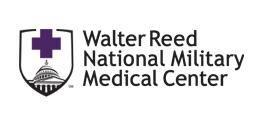
Walter Reed National Military Medical Center The Walter Reed National Military Medical Center is one...
Click here to add this to my saved trials
Massachusetts General Hospital Cancer Center An integral part of one of the world
Click here to add this to my saved trials
Dana-Farber Cancer Institute Since it’s founding in 1947, Dana-Farber has been committed to providing adults...
Click here to add this to my saved trials
Click here to add this to my saved trials
Click here to add this to my saved trials
Univ of Illinois A major research university in the heart of one of the world's...
Click here to add this to my saved trials
5841 S Maryland Ave
Chicago, Illinois 60637
Chicago, Illinois 60637
1-773-702-6180

University of Chicago Comprehensive Cancer Center The University of Chicago Comprehensive Cancer Center (UCCCC) is...
Click here to add this to my saved trials
Click here to add this to my saved trials
University of Missouri-Ellis Fischel Ellis Fischel Cancer Center's team of physician specialists and other trained...
Click here to add this to my saved trials
Click here to add this to my saved trials
Click here to add this to my saved trials
Click here to add this to my saved trials
Wayne Memorial Hospital Wayne Memorial Hospital, an affiliate of Wayne Health Corporation, is home to...
Click here to add this to my saved trials
Click here to add this to my saved trials
Click here to add this to my saved trials
Click here to add this to my saved trials
Click here to add this to my saved trials
601 South Rancho Drive
Suite C-26
Las Vegas, Nevada 89106
Las Vegas, Nevada 89106
(702) 384-0013
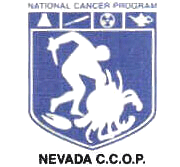
Nevada Cancer Research Foundation CCOP The Nevada Cancer Research Foundation Community Clinical Oncology Program (NCRF-CCOP)...
Click here to add this to my saved trials
Click here to add this to my saved trials
Dartmouth Hitchcock Medical Center Dartmouth-Hitchcock is a national leader in patient-centered health care and building...
Click here to add this to my saved trials
Beebe Medical Center Located in beautiful historic Lewes, Delaware, near Rehoboth Beach, Beebe Healthcare offers...
Click here to add this to my saved trials
Long Island Jewish Medical Center Serving North Shore LIJ Health System employees and their families....
Click here to add this to my saved trials
Click here to add this to my saved trials
4755 Ogletown-Stanton Road
Newark, Delaware 19718
Newark, Delaware 19718
302-733-1000

Christiana Care Health System - Christiana Hospital A 913-bed, 1.3-million-square-foot, modern facility in Newark, Delaware,...
Click here to add this to my saved trials
Click here to add this to my saved trials
940 NE 13th St
Oklahoma City, Oklahoma 73190
Oklahoma City, Oklahoma 73190
(405) 271-6458

University of Oklahoma Health Sciences Center The OU Health Sciences Center is composed of seven...
Click here to add this to my saved trials
Univ of Nebraska Med Ctr A vital enterprise in the nation’s heartland, the University of...
Click here to add this to my saved trials
Click here to add this to my saved trials
Click here to add this to my saved trials
Miriam Hospital The Miriam Hospital is a private, not-for-profit hospital, with a history of providing...
Click here to add this to my saved trials
660 S Euclid Ave
Saint Louis, Missouri 63110
Saint Louis, Missouri 63110
(314) 362-5000

Washington University School of Medicine Washington University Physicians is the clinical practice of the School...
Click here to add this to my saved trials
Click here to add this to my saved trials
Click here to add this to my saved trials
1 Medical Center Blvd
Winston-Salem, North Carolina 27157
Winston-Salem, North Carolina 27157
336-716-2011

Wake Forest University Health Sciences Welcome to Wake Forest Baptist Medical Center, a fully integrated...
Click here to add this to my saved trials
Click here to add this to my saved trials


